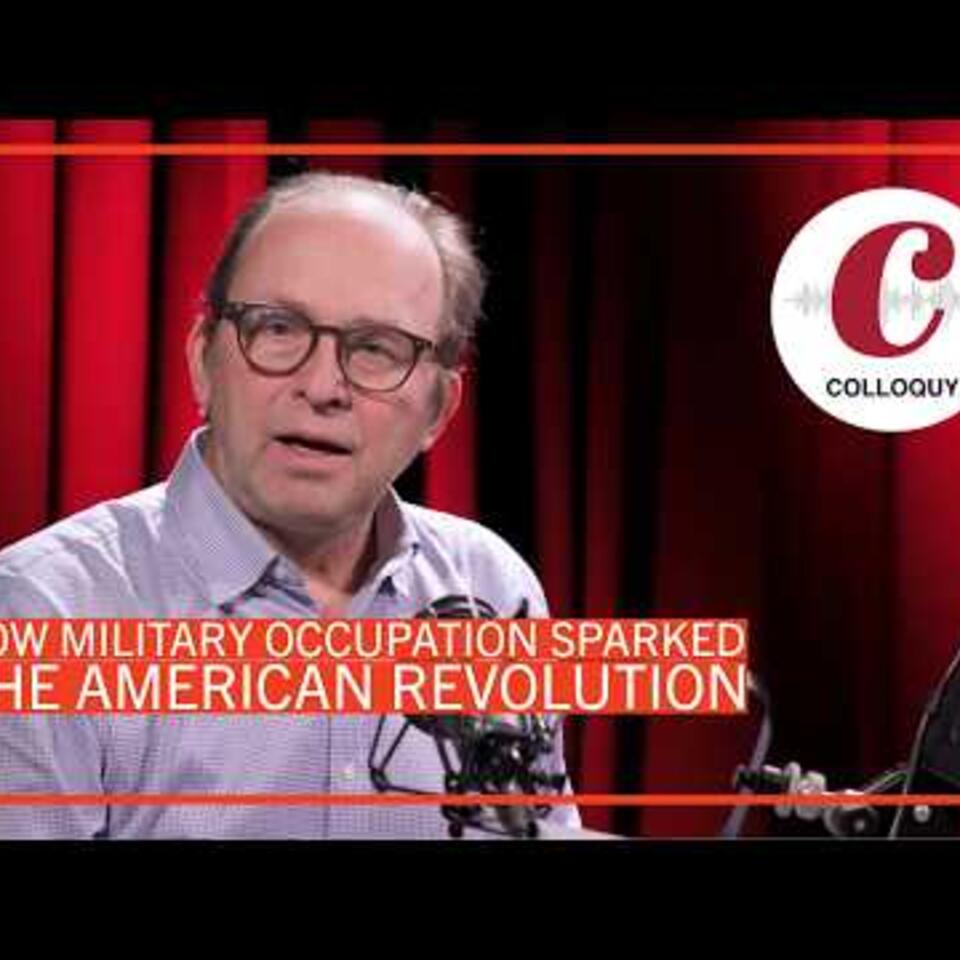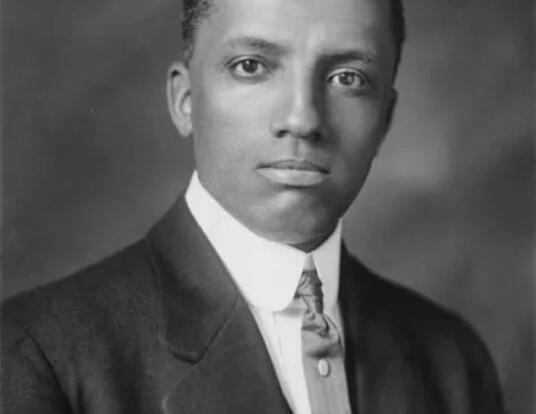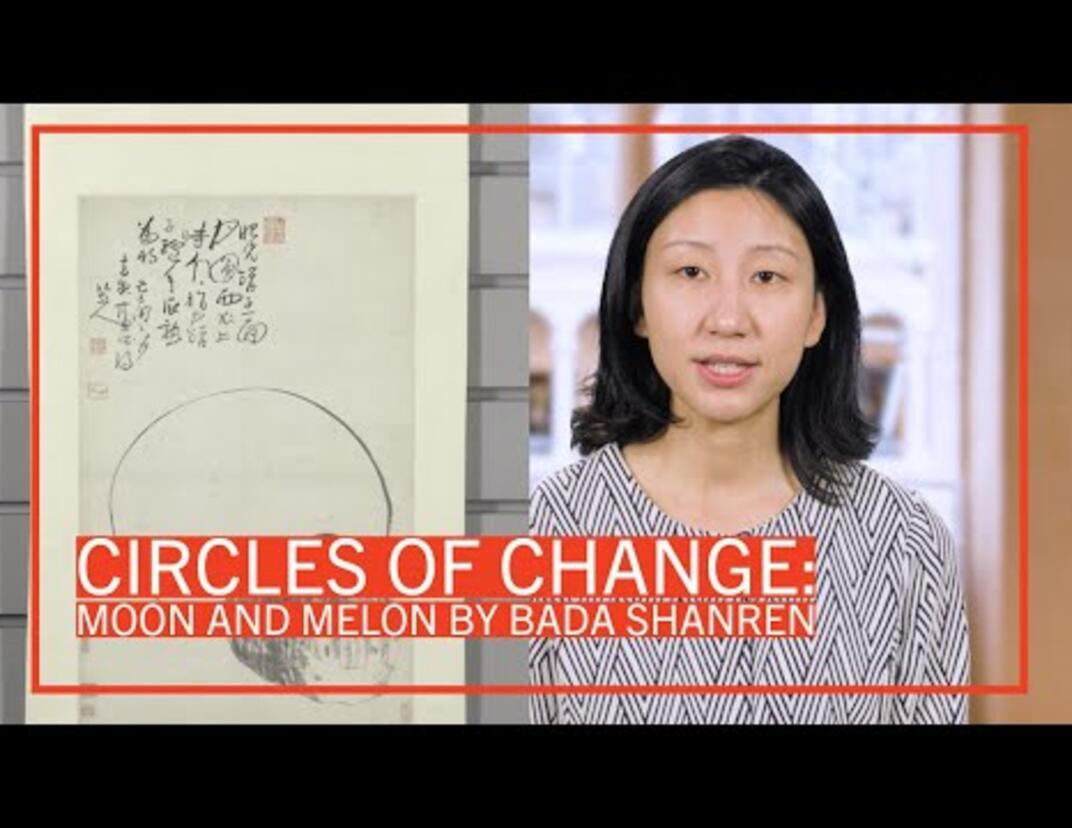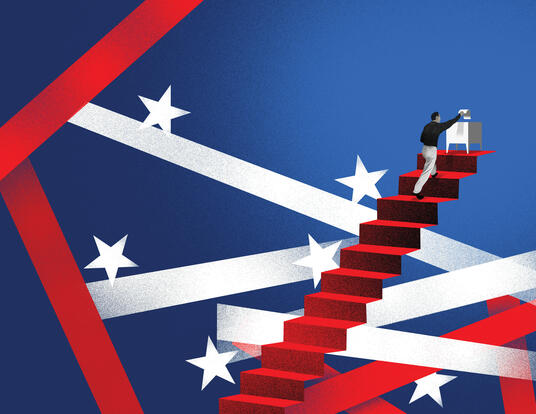Understanding the Present
A Conversation with Sophia Rosenfeld, PhD ’96
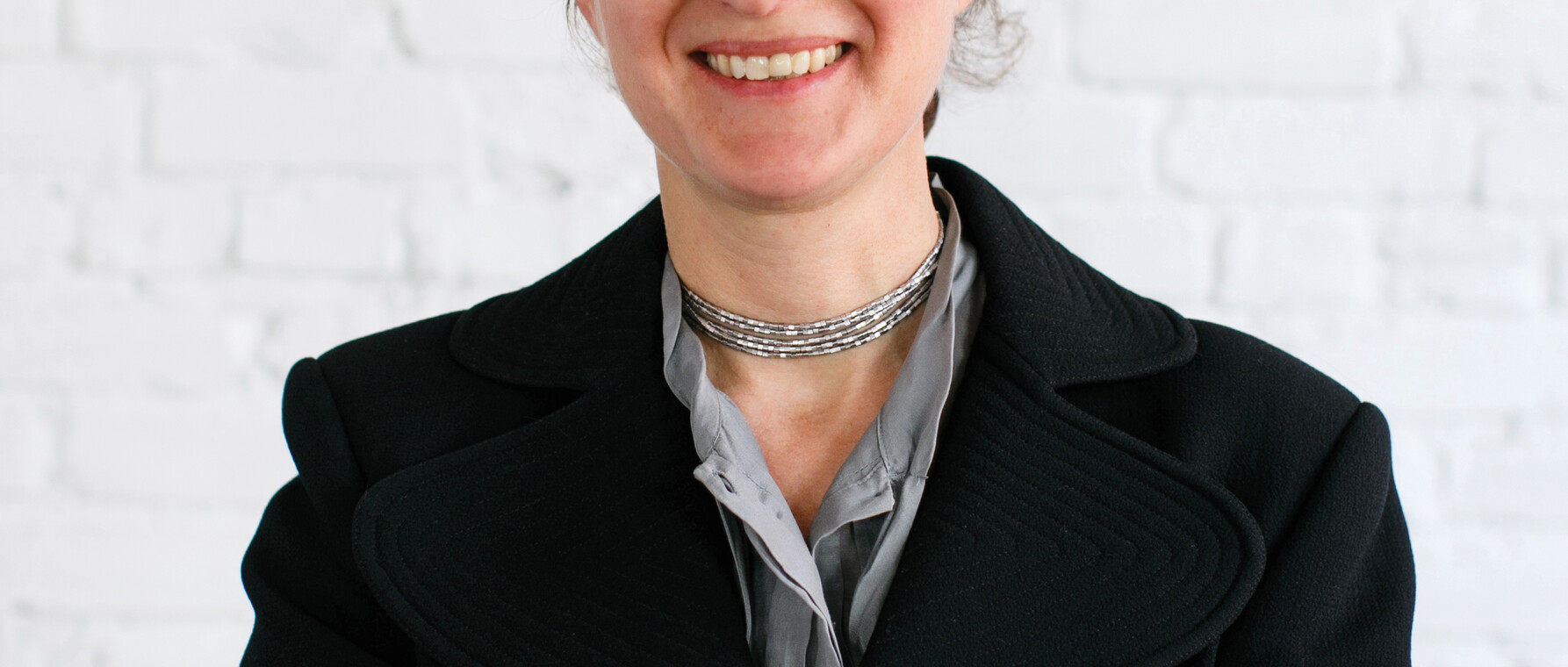
Sophia Rosenfeld, PhD ’96, is Walter H. Annenberg Professor of History at the University of Pennsylvania, where she teaches European intellectual and cultural history. In her latest book, Democracy and Truth, Rosenfeld explains how lessons from the past can inform conversations about politics today.
How did you come to write Truth and Democracy?
Like many other people, I became addicted to the news after the last presidential election. At first, I thought I was procrastinating, but the more I thought about it, the more it seemed that what I’d worked on for several decades as a scholar was converging with what was happening in the world. Writing the book was a response to current events, but I do believe history, in both its familiarity and its strangeness, allows us to understand the present, to come to terms with the world we live in now.
Is truth important to democracy or how did the idea of truth become inextricably linked to the concept of democracy?
That’s a critical question. At least in principle, truth is a key component of democracy. Democracy has to be built on a foundation of truth produced through a collective mechanism and democracy has to help generate truth. The complexity, as I try to explain in the book, comes from the fact that while the founders of early forms of democracy stressed the importance of truth, no one was given sole authority to define what that truth was. No one institution, no one person, no one method, which meant, of course, that truth was always going to be a little up for grabs, worked out in a conflictual way. The end result is that the pursuit of truth is always both really important and a source of conflict, with a potential for destabilizing democracy.
Often, we expect facts and truths to be the same thing. But can facts also be up for interpretation?
Anyone can show you that what counts as a basic fact, for example an unemployment rate, depends upon all sorts of preconceptions—what work is, who should be working, what should be paid and valued in monetary form—which can make facts appear anything but objective. On the other hand, if we can’t agree on some basic facts as starting points, it’s hard to have any meaningful public debate. We need to agree whether the unemployment rate is going up or down as a baseline for then disagreeing about labor policy, for example.
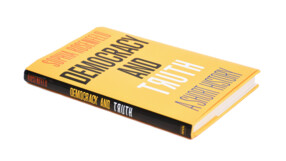
What do you want readers to take away from the book?
The danger of a book like this is that it essentially preaches to the choir. Am I changing people’s minds? I hope so, but I don’t think I can be so presumptuous. I might, though, be able to offer slightly better arguments for people who want to explain what is or isn’t distinctive about the present and what can be done about the state of political untruth today. Overall, I hope that I can provide some food for thought beyond all the terrifying headlines.
The formal definition of who can participate in public debate has expanded from predominately elite white males in the early days of the United States to encompass a much larger segment of society today. Does that change democracy from the way it was originally envisioned?
First, we have to ask what we mean by the idea that democracy has expanded. Democratization has certainly meant that more people from different walks of life get to weigh in on public affairs. You might say that in the age of social media, we’ve all potentially become pundits and commentators, as well as publishers and distributors of information. At the same time, though, democracies have spawned more experts with specialized knowledge, including an extensive knowledge of bureaucracy inside and outside of government. This has created both helpful synergies and tensions. The ordinary person can’t calculate the unemployment rate. They don’t have that expertise, but they can tell you if more people in their family are employed or not employed than 10 years ago. And these two kinds of information may or may not sit well together.
Do you see this struggle over information and knowledge happening in other parts of the world?
I think some of the same currents are evident everywhere in the world right now, in most developed democracies: Brazil, the United Kingdom, across much of Europe, and India. They have been caught up in a global pattern in which ordinary people have found themselves more and more left out of the world by an economic and educational globalism, which is related to expertise. This is a tense moment, a battle over who controls truth.
Do you think truth actually exists?
There’s a hard question, probably the hardest question of all. I think of truth more as an aspiration than as a thing unto itself. We aspire all the time to know more and know better and to know it with more accurate means. If you give up on the aspiration, then any claim is as good as another. And if there can be no evidence to debate, there can be no security in our findings.
When it comes to politics, I would probably prefer to talk about what some call public knowledge, where we don’t have 100 percent assurance about what we claim but aim to offer our best collective guess. That sounds sort of cynical, as if I’m saying there is no truth. But what I’m saying is that truth in public life doesn’t have the status of unchallengeable veracities. One of the good things about democracy is that it also encourages skepticism. We’re always on the fence, looking to make sure that what we claimed is true is as true as possible.
And that’s the benefit of a democracy?
Part of the point is that we can keep rethinking things. Every historical claim, for example, is open to challenge as new evidence emerges, as people understand the past differently. For example, the dates of the opening battles of World War I haven’t shifted. But what we think the start of the war means and how we describe it has certainly changed over time.
So, we continually reinterpret things for our own time?
People sometimes ask, why is there anything new to say about history? But there is because the present keeps changing.
What’s next?
I’m writing a book about the history of choice: How did we come to believe that what it means to be free is to make a lot of choices? Whether we’re talking about consumer goods or human rights ideals, choices are highly valued as a global ideal—a little bit like truth in that sense. I’m trying to explore how that came to be. How did freedom get redefined as choice? What were the steps that made shopping and voting, for example, come to seem like good ways of exercising our economy and living in the world? I’m always interested in the big, unexamined concepts that shape our lives today.
Photos by Amanda Jaffe
Get the Latest Updates
Join Our Newsletter
Subscribe to Colloquy Podcast
Simplecast


